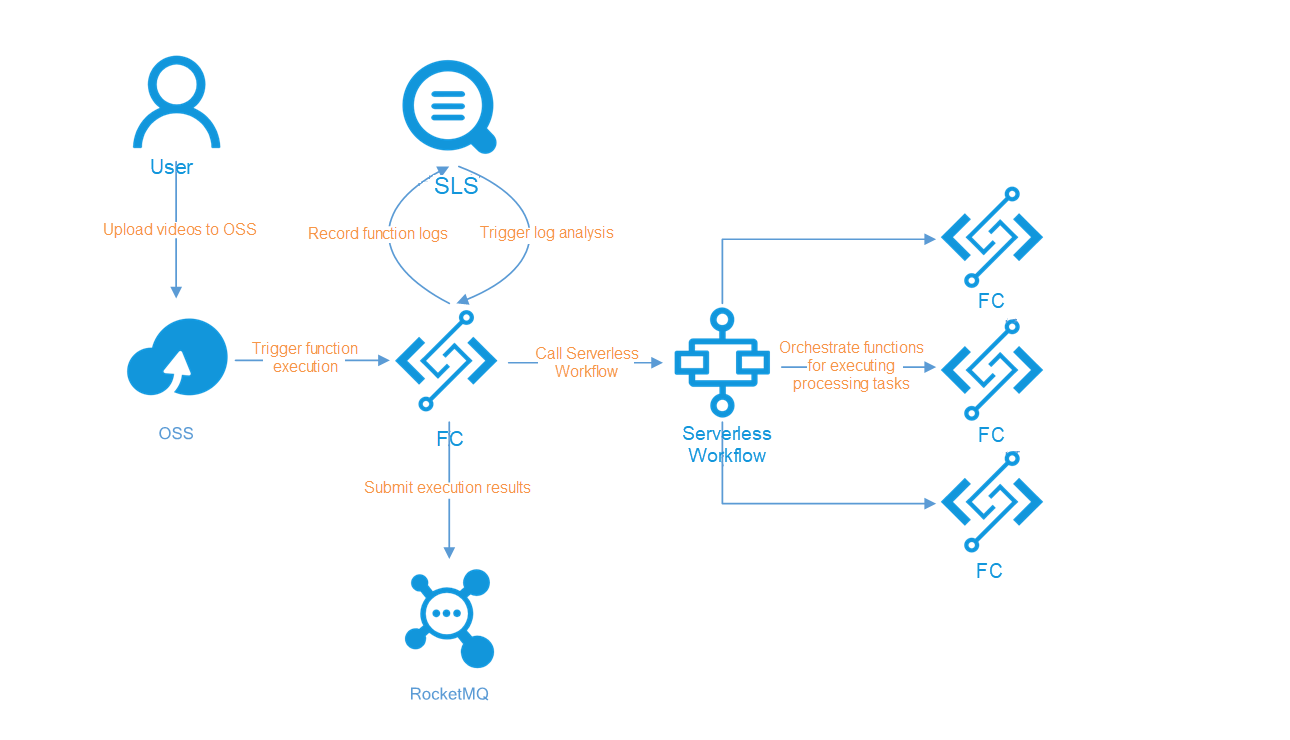In recent years, Serverless technology has been developing rapidly and having an increasing impact. Mainstream cloud service providers are also enriching their cloud products and services, providing better development tools, more efficient application delivery pipelines, better observability, and more refined product integration. However, it's just the beginning.
Some large companies in China already have some mature Serverless application cases, and some startup companies are beginning to join the Serverless camp. If we ask what problems Serverless solves, the answer will be cost and energy saving.
MosoInk is a high-tech company founded by Chinese students that studied in the United States. This company focuses on technology research and platform operations in digital publishing and mobile education in the mobile Internet era. MosoInk developed its exclusive core technology system with mobile and interactive digital teaching materials. MosoInk provides publishers, schools, and teachers with mobile and interactive digital teaching materials, mobile learning platforms, and self-service digital publishing.
Since its establishment in 2012, MosoInk's business has maintained rapid growth, and its Technical Team is growing gradually. From the start of the entrepreneurship, MosoInk's Technical Team has kept great enthusiasm for new technologies. The team is willing to apply quickly iterated new Internet technologies to ensure the stable operation of the business system. Facing the explosive demand for online education, MosoInk has stepped up efforts to integrate high-quality course resources in the industry to expand its business boundaries continuously. However, while acquiring opportunities, the Technical Team faced unprecedented challenges.
One of the most difficult problems faced by MosoInk is related to video processing. MosoInk processes a large number of course videos every day, involving complex processing tasks, such as clipping, splitting, merging, transcoding, resolution adjustment, and client adaptation. Over the past several years, MosoInk has developed a controllable video processing mechanism using technologies, such as FFmpeg, which has supported its rapid business development. However, the business growth rate this year went beyond the expectation of MosoInk's Technical Team. The number of video processing requests during peak hours was dozens of times higher compared to previous years. Overwhelmed by the request volume, the architecture developed by MosoInk provided a poor user experience.
The first solution the MosoInk Technical Team thought of was scaling. Horizontal scaling can solve the problem in the short term, but the number of video processing requests can fluctuate wildly throughout the day. Most requests must be processed as fast as possible during peak hours. A lot of computing resources would be wasted if the system capacity was planned based on the peak demand. Besides, the peak demand is difficult to predict. If the system schedules resources to process some peak-hour requests during off-peak hours, the cost of computing resources is reduced. However, this may result in long processing queues for customers.
The Technical Team considered improving video processing efficiency by using video transcoding solutions provided by cloud vendors similar to the Backend as a Service (BaaS). These solutions eliminated the need to plan the resource capacity. Instead, MosoInk could consume cloud services based on the business requirements. This solution seemed feasible, but MosoInk was hesitant. The video processing mechanism of MosoInk was highly sophisticated. It contained a lot of custom business logic implemented by code but cannot be implemented by third-party video transcoding services.
MosoInk needed a solution that was cost-efficient, highly elastic, and O&M-free. These core demands can be satisfied by Serverless technology. The Technical Team conducted comprehensive research on Serverless services provided by Chinese cloud service providers. After the research, the Technical Team unanimously decided that Alibaba Cloud Function Compute (FC) best suited their needs for video processing.
Alibaba Cloud FC is an event-driven and fully hosted Serverless computing service that allows users to write and upload code without managing infrastructure resources, such as servers. FC prepares computing resources and runs tasks elastically and reliably. FC is compatible with the existing code logic and supports mainstream development languages. With these benefits, the code logic can be migrated seamlessly from the original architecture to FC at low costs. FC triggers instances automatically to process videos that are uploaded to OSS through connections with the OSS trigger. FC can uniformly orchestrate distributed tasks with integrated Serverless Workflow. This allows complex operations on files, such as large file splitting, and parallel processing, and small file merging. This further improves the processing efficiency.
FC is a completely on-demand Serverless solution that fully utilizes the elasticity of cloud computing. On the one hand, FC can enable the computing resources of tens of thousands of instances in a short period to execute video processing tasks quickly. On the other hand, there is no need to reserve computing resources. Moreover, users do not need to maintain the underlying software or hardware. This can reduce operating costs and allow the team to focus more on the implementation of complex business logic. Compared with traditional solutions, the Serverless solution based on FC helped MosoInk save 60% on IT service costs in video processing scenarios.

The value of Serverless is self-evident. Alibaba Cloud is one of the earliest companies in China to launch Serverless computing services. Function as a Service (FaaS) is the most representative product form of Serverless. MosoInk is not the only enterprise to enjoy the great value of Alibaba Cloud FC. Sina Weibo Microblog, Shimo, Mango TV, and other companies are all fans of FC. Recently, at the 2020 Trusted Cloud Summit, Alibaba Cloud FC passed 21 tests, including basic capabilities, platform observability, service performance, and service measurement accuracy. Alibaba Cloud FC was certified as a Trusted Cloud FaaS with full marks. Moreover, in the report released by Forrester, Alibaba Cloud FC was appraised as a strong performer.
In addition to diversified product forms, Alibaba Cloud FC continues to optimize the user experience through industry-leading practices, such as hard disk mounting, instance reservation, image acceleration, and large-scale instances. FC puts the needs of users first and is committed to developing valuable products for users.
MosoInk firmly chooses Alibaba Cloud FC and explores Serverless transformation scenarios in other business fields. MosoInk has successfully integrated FC and SLS. When logs are written continuously as streams, SLS automatically triggers FC to process data, analyze the important information in logs, and trigger exception alerts. SLS also compresses, converts, and stores logs to other media based on business rules to ensure stable and efficient system operation.
The MosoInk Technical Team will integrate FC into more scenarios to improve in the future. This way, the Technical Team can enjoy the benefits of cloud-native technologies and improve their technical capabilities. Alibaba Cloud will make achievements together with users!
Function Compute Image Acceleration: A Leap from Minutes to Seconds
97 posts | 7 followers
FollowAlibaba Clouder - February 24, 2021
Alibaba Cloud Serverless - January 13, 2021
Alibaba Clouder - February 9, 2021
Iain Ferguson - December 29, 2021
JDP - November 19, 2021
Alibaba Clouder - April 8, 2020
97 posts | 7 followers
Follow Function Compute
Function Compute
Alibaba Cloud Function Compute is a fully-managed event-driven compute service. It allows you to focus on writing and uploading code without the need to manage infrastructure such as servers.
Learn More Serverless Workflow
Serverless Workflow
Visualization, O&M-free orchestration, and Coordination of Stateful Application Scenarios
Learn More Serverless Application Engine
Serverless Application Engine
Serverless Application Engine (SAE) is the world's first application-oriented serverless PaaS, providing a cost-effective and highly efficient one-stop application hosting solution.
Learn More Compute Nest
Compute Nest
Cloud Engine for Enterprise Applications
Learn MoreMore Posts by Alibaba Cloud Serverless